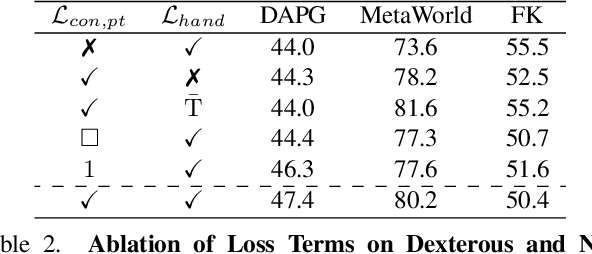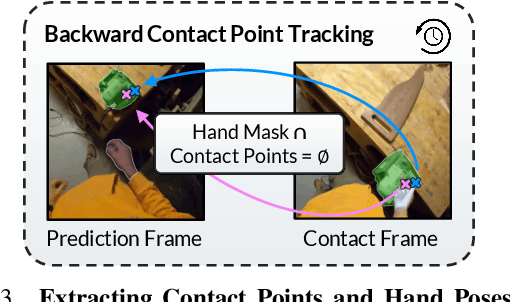Shubh Goel
MAPLE: Encoding Dexterous Robotic Manipulation Priors Learned From Egocentric Videos
Apr 08, 2025



Abstract:Large-scale egocentric video datasets capture diverse human activities across a wide range of scenarios, offering rich and detailed insights into how humans interact with objects, especially those that require fine-grained dexterous control. Such complex, dexterous skills with precise controls are crucial for many robotic manipulation tasks, yet are often insufficiently addressed by traditional data-driven approaches to robotic manipulation. To address this gap, we leverage manipulation priors learned from large-scale egocentric video datasets to improve policy learning for dexterous robotic manipulation tasks. We present MAPLE, a novel method for dexterous robotic manipulation that exploits rich manipulation priors to enable efficient policy learning and better performance on diverse, complex manipulation tasks. Specifically, we predict hand-object contact points and detailed hand poses at the moment of hand-object contact and use the learned features to train policies for downstream manipulation tasks. Experimental results demonstrate the effectiveness of MAPLE across existing simulation benchmarks, as well as a newly designed set of challenging simulation tasks, which require fine-grained object control and complex dexterous skills. The benefits of MAPLE are further highlighted in real-world experiments using a dexterous robotic hand, whereas simultaneous evaluation across both simulation and real-world experiments has remained underexplored in prior work.
 Add to Chrome
Add to Chrome Add to Firefox
Add to Firefox Add to Edge
Add to Edge